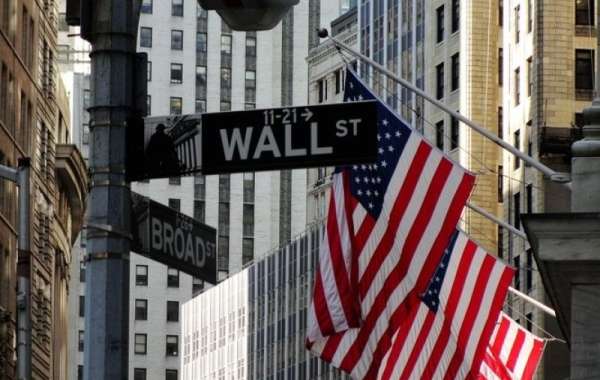The financial market is constantly changing, and investment and economic policies have a profound impact on the world. We bring you last night and this morning's financial news, covering stock market dynamics, economic data, corporate finance, and policy updates, to help you fully grasp the financial world.
The three major indexes of the US stock market collectively closed higher, and large technology stocks generally rose
On March 20, 2025, the three major US stock indices collectively rose, with the Dow Jones Industrial Average, Nasdaq, and S&P 500 rising 0.93%, 1.41%, and 1.08%, respectively. Large tech stocks have generally risen, with Tesla increasing by over 4%, Broadcom and Google also rising by over 3% and 2% respectively. The cryptocurrency, cruise ship, and automobile manufacturing sectors have performed outstandingly, with Strategy rising by over 7%. However, food and beverage and monkeypox concept stocks performed poorly, with Tonix falling more than 19%. The Federal Reserve's decision to maintain the benchmark interest rate unchanged and slow down the pace of balance sheet reduction has had a positive impact on the market.
Yunda Corporation: Industry regulatory authorities initiate investigation into wholly-owned subsidiary
Shanghai Yunda Freight Co., Ltd., a wholly-owned subsidiary of Yunda Corporation, has been investigated by industry regulatory authorities due to management issues. The company attaches great importance to this and has established a special task force to conduct internal investigations and immediately deploy corrective measures. Yunda Group promises to strengthen the management and control of franchise outlets, enhance their professional ability to identify disguised items, and prevent similar incidents from happening again.
Nezha Automobile announces supplier debt plan: plans to convert 70% of debt into equity of parent company
On March 19, 2025, Nezha Automobile announced a debt resolution plan, which plans to convert 70% of its supplier debt into equity of its parent company, Hezhong Automobile, and the remaining 30% to be repaid in interest free installment cash. This move is seen by some suppliers as binding creditors to the company's tanks. At the same time, Nezha Automobile announced the progress of its E-round financing, with a 3 billion yuan financing originally scheduled to be paid in March delayed until April due to risks. The company denies rumors of disbanding its R&D team and emphasizes that it is currently optimizing its organization and processes. At present, Nezha Automobile is facing debt and financial risks of up to billions of yuan.
The Federal Reserve is expected to hold its fire as scheduled and cut interest rates twice this year
The Federal Reserve decided at its March 2025 meeting to keep the federal funds rate unchanged at 4.25% -4.5%, in line with market expectations. After the meeting, the three major US stock indices and gold prices all rose, while the US dollar index fell nearly 20 points. According to the Federal Reserve's dot matrix forecast, there will be two interest rate cuts in 2025. This decision reflects the Federal Reserve's assessment of the current economic situation and its expected adjustment of future monetary policy.
Canadian crude oil exports to the United States drop to their lowest level in two years after tariff threat drives export competition
Summary: Due to the tariff threat from US President Trump, a large amount of Canadian crude oil has flooded into the United States, leading to a sharp decline in US inventories. However, the latest data shows that the volume of crude oil imported by the United States from Canada has dropped to 3.13 million barrels per day, the lowest level since March 2023. Enbridge Inc。 Indicating that there is no need to allocate space on Canada's largest oil export pipeline network next month, implying that exports of crude oil to the United States may remain low. This change reflects the profound impact of tariff policies on international trade.
Tariffs bring uncertainty to the economy, leading to layoffs in several large financial institutions in the United States
Several large financial institutions in the United States have announced layoffs due to economic uncertainty. Morgan Stanley plans to lay off 2000 employees, JPMorgan expects to lay off nearly 1000 employees, Goldman Sachs expects to lay off 3% to 5%, BlackRock has already laid off about 1%, and Bank of America's investment banking department has cut 150 junior positions. These layoffs reflect the uncertainty brought to the economy by the US government's adjustment of tariff policies. Despite market expectations of recovery after last year's presidential election, the impact of tariff policies has gradually eroded optimism.
Closing: US stocks close higher, Nasdaq up 1.4%. Federal Reserve still predicts two interest rate cuts this year
The US stock market closed higher on Wednesday, with the Nasdaq rising 1.4%, and the Dow Jones Industrial Average and S&P 500 index also rising 0.92% and 1.08%, respectively. The Federal Reserve maintains interest rates unchanged, predicts two interest rate cuts this year, and raises inflation expectations while lowering economic growth forecasts. Federal Reserve Chairman Powell first mentioned the impact of tariffs on the economy, emphasizing the high uncertainty of the current economic outlook. Market concerns about stagflation risk have intensified, with 71% of fund managers expecting stagflation in the United States. In addition, several technology companies such as NVIDIA, Tesla, and Microsoft have announced new cooperation plans and technological advancements.
Powell: Market confidence has significantly declined, but economic activity has not yet occurred
In his speech on March 20, 2025, Federal Reserve Chairman Powell pointed out that despite a significant decline in market confidence, current economic activity has not been significantly affected. Powell mentioned that the forecast shows that economic growth will slow down while inflation rates rise, which requires different response measures to be taken. He emphasized that there is a mutually offsetting relationship between these factors, and economic activity remains stable at present.
The Federal Reserve significantly lowers its 2025 economic growth forecast and raises its inflation rate estimate
In its forecast released on March 20, 2025, the Federal Reserve significantly lowered its economic growth forecast for 2025, from 2.1% in December to 1.7%, while raising its inflation rate estimate. It is expected that the PCE price index will rise to 2.7% by the end of the year, and the core PCE price index will rise to 2.8%. This adjustment reflects the increasing uncertainty in the economic outlook, although the long-term economic growth rate is expected to remain unchanged at 1.8%.
The Federal Reserve announced that it will maintain the target range of the federal funds rate unchanged
The Federal Reserve decided at its meeting on March 19, 2025 to maintain the target range of the federal funds rate between 4.25% and 4.50% unchanged. This decision reflects the Federal Reserve's assessment of the current economic situation, indicating that it believes the current interest rate level is appropriate and does not require further adjustment to cope with economic changes. This move may aim to stabilize market expectations, support sustained economic growth, while monitoring changes in inflation and other economic indicators.
Bank of America CEO: American consumers continue to spend, industry ready for regulatory easing
Bank of America CEO Brian Moynihan pointed out that despite facing trade wars and market volatility, US consumer spending continues to grow, and the banking industry is preparing for possible regulatory easing. Moynihan believes that regulatory reforms will allow banks to enter industries they previously avoided, such as cryptocurrency and stablecoin businesses. He mentioned that despite the uncertainty, economic investment increased by 6% at the beginning of this year, indicating a positive economic signal. Moynihan emphasized that regulatory easing will benefit banks and financial companies, but tariff issues may still slow down economic growth.








